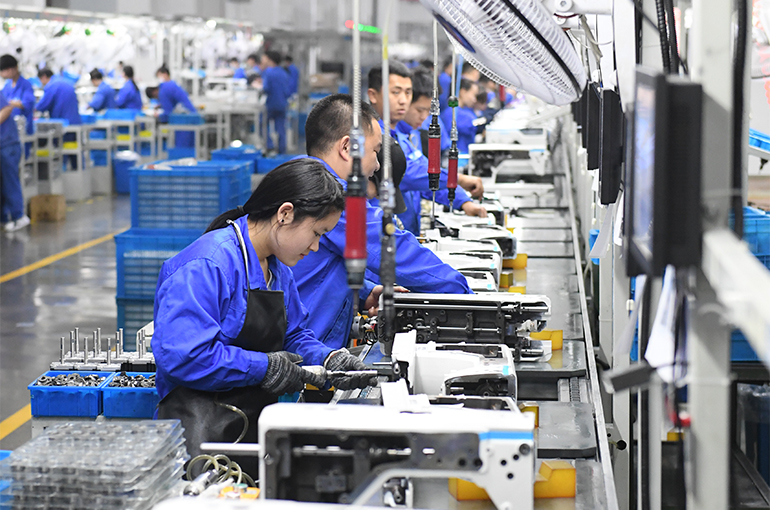 CPPCC Members Propose Stepping Up Gov't Support for Private Firms, Employment Ahead of Two Sessions
CPPCC Members Propose Stepping Up Gov't Support for Private Firms, Employment Ahead of Two Sessions(Yicai) March 4 -- Several members of the Chinese People's Political Consultative Conference proposed that the Chinese government should step up efforts to support the development of private companies and promote employment ahead of the Two Sessions, China's annual policy-setting meetings.
The vitality of the private economy declined in recent years because of a series of internal and external factors, therefore the government should provide special funding to eligible private enterprises and encourage financial institutions to increase the proportion of credit allocation to private firms, Liu Yonghao, a member of the CPPCC and chairman of Chinese agricultural product manufacturer New Hope Group, told Yicai yesterday.
The six-day 14th National Committee of the CPPCC will kick off at the Great Hall of the People in Beijing today. This year, the CPPCC will focus on promoting employment, such as organizing surveys on the employment of college graduates, improving the vocational skills training system, and resolving structural employment contradictions, Liu Jieyi, spokesperson for the CPPCC, said at the first press conference of the Two Sessions yesterday.
The government should ensure that the loan growth of private enterprises is not lower than that of bank loans to enterprises and provide support in terms of bond issuance guarantee and credit enhancement for private firms, Liu noted.
Private enterprises still face challenges, such as difficulty in financing, market access barriers, and heavy tax burdens, Qi Xiangdong, a member of the CPPCC and chairman of Chinese cybersecurity giant Qi An Xin Technology, told Yicai.
To stimulate companies' enthusiasm to invest and expand their businesses, it is necessary to comprehensively identify and eliminate various barriers, especially by opening up market competition in key areas, such as data, electricity, telecommunications, and financial services, Qi noted.
The Chinese government should strengthen the macro-control orientation of prioritizing employment, said Xu Ling, a member of the CPPCC and deputy director of the Guangdong Provincial Committee of the China Democratic National Construction Association. When formulating economic development plans, industrial policies, and public investment policies, clear employment targets should be set, she added.
It is also necessary to improve the survey of employment demand and the unemployment early warning mechanism, Xu pointed out. Moreover, universities should timely optimize and adjust their majors to cultivate talents that meet the needs of China's economic development, she noted.
Editors: Dou Shicong, Futura Costaglione